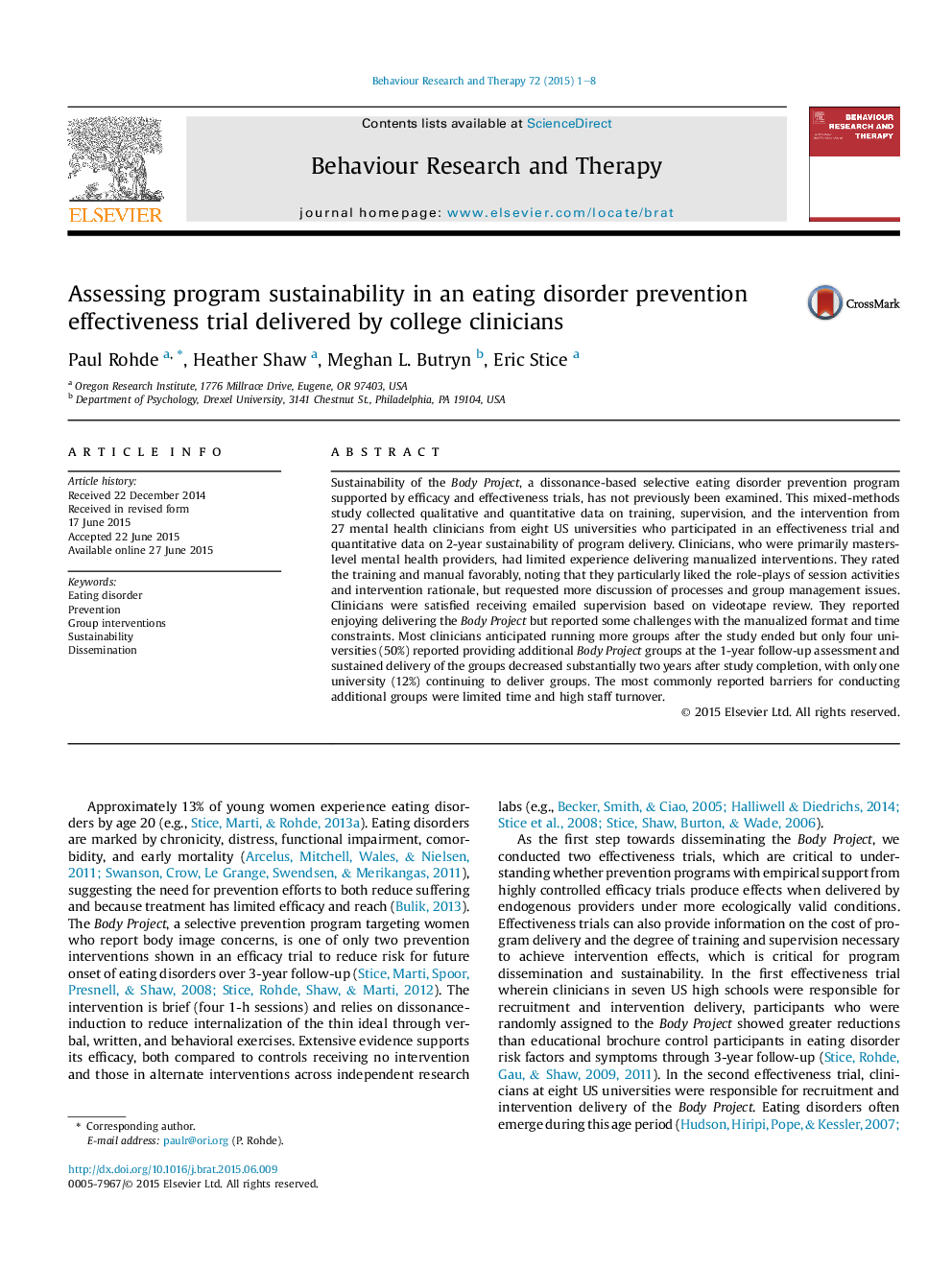| Article ID | Journal | Published Year | Pages | File Type |
|---|---|---|---|---|
| 7262246 | Behaviour Research and Therapy | 2015 | 8 Pages |
Abstract
Sustainability of the Body Project, a dissonance-based selective eating disorder prevention program supported by efficacy and effectiveness trials, has not previously been examined. This mixed-methods study collected qualitative and quantitative data on training, supervision, and the intervention from 27 mental health clinicians from eight US universities who participated in an effectiveness trial and quantitative data on 2-year sustainability of program delivery. Clinicians, who were primarily masters-level mental health providers, had limited experience delivering manualized interventions. They rated the training and manual favorably, noting that they particularly liked the role-plays of session activities and intervention rationale, but requested more discussion of processes and group management issues. Clinicians were satisfied receiving emailed supervision based on videotape review. They reported enjoying delivering the Body Project but reported some challenges with the manualized format and time constraints. Most clinicians anticipated running more groups after the study ended but only four universities (50%) reported providing additional Body Project groups at the 1-year follow-up assessment and sustained delivery of the groups decreased substantially two years after study completion, with only one university (12%) continuing to deliver groups. The most commonly reported barriers for conducting additional groups were limited time and high staff turnover.
Related Topics
Health Sciences
Medicine and Dentistry
Psychiatry and Mental Health
Authors
Paul Rohde, Heather Shaw, Meghan L. Butryn, Eric Stice,
